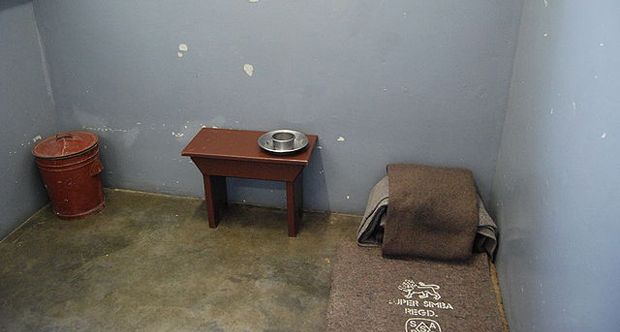The department of correctional services is back in the spotlight after The Times revealed that six prisoners at a Pretoria jail were held in solitary confinement for 23 hours a day, for weeks on end. It’s not the first time that the unlawful and inhumane treatment of prisoners in South African prisons have come to light, but it’s particularly jarring to see such abuse just months after South Africa trumpeted its adoption of The Mandela Rules. FIRDAUS KHAN looks at five ways that South African prisons have failed in the ethical treatment of prisoners.
The Mandela Rules are a new and improved version of the original United Nations’ 1995 Standard Minimum Rules for the Treatment of Prisoners. The new rules were officially adopted by the UN on 22 May this year, and cover nine areas in correctional services, including health care, investigations of deaths, disciplinary measures including the limited use of solitary confinement, professionalisation of prison staff and inspections.
If adhered to, these 122 rules could drastically improve the conditions of South African inmates. But, given the current state of our prisons, there’s a lot of work to be done.
1. Ending torture and degradation
Rule 1 of the Mandela Rules states: “No prisoner shall be subjected to, and all prisoners shall be protected from, torture and other cruel, inhuman or degrading treatment or punishment.â€
Torture has a long and cruel history in South African prisons, and hasn’t gone away in the years since apartheid ended. In May last year, the Department of Correctional Services was sued for just over R1-million. The case was brought by 231 inmates from St Albans Maximum Security Prison, near Port Elizabeth. The prisoners claimed they had been tortured by warders – through beatings, electric shocks, being forced to strip naked, and being ordered to lie on the floor in a human chain, with noses touching the anus of the inmate in front of them. One of the prisoners testified in court, saying that once guards had carried them out, he had been ordered to clean up the blood and faeces of his fellow inmates.
2. Ending overcrowding
Rule 12 states that: “Where sleeping accommodation is in individual cells or rooms, each prisoner shall occupy by night a cell or room by himself or herself… it is not desirable to have two prisoners in a cell or room.â€
South African prisons face such severe overcrowding that 159,241 prisoners are accommodated in space for 120,000 prisoners. These conditions often lead to severe health and safety risks, such as the increased spread of diseases, like tuberculosis and HIV/Aids, as well as an increase in gang rapes and violence.
3. Humane living conditions
RULE 13 states that: “All accommodation provided for the use of prisoners shall meet all requirements of health, due regard being paid to climatic conditions and particularly to cubic content of air, minimum floor space, lighting, heating and ventilation.â€
Six Kgosi Mampuru II prisoners have been facing drastic solitary confinement for the past few weeks. Locked in a 3m by 2m cells, which are located 10m underground, for 23 hours a day, the conditions faced by prisoners are only now being investigated by the South African Human Rights Commission. Mandela Rules 43 and 44 further state that indefinite or prolonged solitary confinement, in excess of 22 hours a day, for 15 days consecutively is prohibited. This type of treatment has been shown to drive a person to violence and self-harm.
4. Providing adequate healthcare
Rule 27 states that: “All prisons shall ensure prompt access to medical attention in urgent cases. Prisoners who require specialized treatment or surgery shall be transferred to specialized institutions or to civil hospitals. Clinical decisions may only be taken by the responsible health-care professionals and may not be overruled or ignored by non-medical prison staff.â€
In 2013, G4S security company was found to be holding inmates in solitary confinement for anything between two weeks and three years. Ill patients were denied access to their necessary and prescribed TB and HIV/Aids medicines. The Guardian reported that for such practices to be legal, the inmate would need to be attended by a nurse, psychologist or medical practitioner.
5. Respecting women’s health
Rule 28 states that: “In women’s prisons, there shall be special accommodation for all necessary prenatal and postnatal care and treatment. Arrangements shall be made wherever practicable for children to be born in a hospital outside the prison.â€
But pregnant women’s rights to adequate care is reportedly ignored. In 2011, a Zimbabwean woman jailed in South Africa told the Wits Justice Project that: “If you start getting labour pains and the door is locked, it’s locked. You bang (on) the door for help – and if they eventually come – they only come to the window. They will not open till the following day.â€
She also noted that wardens are more careless when it comes to healthcare of foreigners, which goes against Mandela Rule 2: “There shall be no discrimination on the grounds of race, colour, sex, language, religion, political or other opinion, national or social origin, property, birth or any other status.









